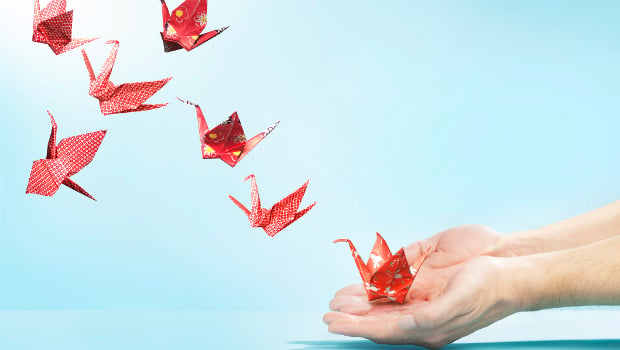[Guest blog by SMART facilitator Michael Cupps]
Have you ever found yourself reacting to a situation almost automatically, like your body moved faster than your mind? Maybe it was a moment of stress, frustration, celebration, or loneliness. In recovery, these moments often feel like mental ambushes. A familiar emotion or setting appears, and suddenly, your brain jumps in with an answer: “I know what to do here. We’ve been through this before.” The problem is, that answer is often tied to old, destructive habits. But what if you could insert a simple pause. It often responds based on the remembered past, not what’s actually happening in the neural present.
That pause could be your greatest asset. Your superpower.
Why We React Before We Think
Our brains are magnificent pattern-recognition machines. From the moment we’re born, they begin forming associations based on our environment and experiences. Over time, these associations become habits—many helpful, some harmful. And when we encounter situations that feel familiar, the brain takes a shortcut. It delivers a fast, reflexive response based on memory. This isn’t a character flaw or a weakness. It’s biology. It’s survival. In many cases, the brain is trying to protect you. But for those of us in recovery, this protective mechanism can become a trap. The trigger doesn’t have to be a drink, a drug, or even a person. It could be a smell, a time of day, a location, or an emotion--anything. And when it hits, it can feel like the only path is the old path.
This is where the pause comes in.
What is the Pause?
The pause is a conscious, intentional interruption between your trigger and your response. It’s that small space where awareness lives. In that space, you get to ask yourself:
-
What am I feeling?
-
What is this situation reminding me of?
-
What do I really want or need right now?
-
Is there another way to handle this?
The pause can be one breath. One step outside. One phone call. One journal entry. It doesn’t have to be long. It just has to be there. And when it is, you gain something powerful: choice.
Pausing Isn’t Easy. But It’s Worth It.
Let’s be honest: when the urge is strong, pausing can feel impossible. Urges don’t ask for permission. They crash in, loud and persuasive. But this is exactly why building your pause muscle is so important. Like any new skill, pausing gets easier with practice. You won’t do it perfectly. You may forget. You may pause too late, that’s okay. The goal isn’t perfection, it is progress. Over time, the pause helps rewire your brain. Instead of reacting from the past, you start responding from the present. Instead of feeling powerless, you begin to feel prepared.
Using SMART Tools to Strengthen the Pause
One of the most practical tools in SMART Recovery is the Urge Log. This simple worksheet allows you to track urges, identify patterns, and learn from them. You write down:
-
What happened before the urge?
-
What thoughts or feelings did you experience?
-
What did you do?
-
How did you feel afterward?
The Urge Log does two critical things:
-
It gives you insight. You start to see what consistently triggers your urges. That awareness becomes your early warning system.
-
It reinforces the pause. When you reflect on what worked, or didn’t, you reinforce the idea that you do have the ability to choose differently.
When you anticipate a trigger and plan your response in advance, you make it easier to pause in the moment. You train your brain to expect a new outcome, not just fall into an old pattern.
Building Your Superpower
Think of the pause as a superhero origin story. No one wakes up with instant powers. There’s always a journey—a period of learning, stumbling, adapting, and growing. But eventually, what once seemed unnatural becomes second nature. Here are a few ways to build your pause muscle:
-
Practice mindfulness. Even five minutes a day of focusing on your breath can help you slow down when it matters.
-
Visualize your pause. Before going into a known trigger situation, imagine yourself successfully pausing and making a healthy choice.
-
Use grounding techniques. When triggered, engage your senses: name five things you can see, four you can touch, three you can hear, two you can smell, one you can taste.
-
Talk it out. Call someone in your support network. Saying what you’re feeling out loud can delay impulsive action.
-
Reward your success. Every time you pause, even for a second, acknowledge it. You just made progress.
Recovery isn’t about never being triggered. It’s about knowing how to respond when you are. And the pause is your secret weapon. It won’t always feel natural, but each time you pause, even if you stumble afterward, you’re breaking the automatic cycle. You’re rewiring your mind. You’re reclaiming your power.
To find and in-person or online meeting go to the “Meetings” tab at www.smartrecovery.org




